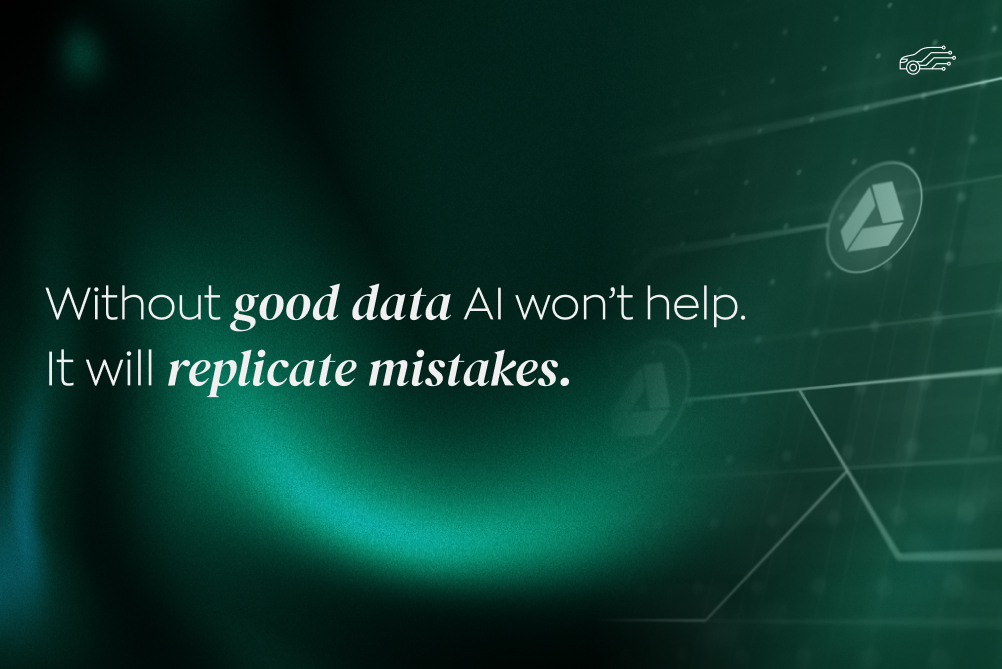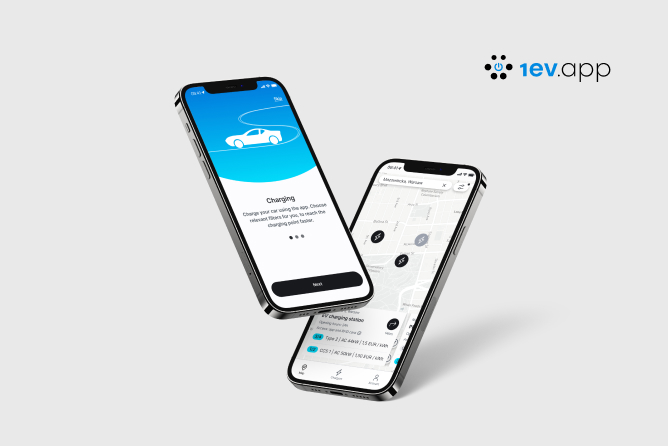It's a Big Data world, and businesses are scrambling for innovative solutions that offer a competitive edge while keeping costs and resource utilization low.
Enter the transformative power of Machine Learning (ML): a technology that learns and adapts from data, automates complex tasks and unlocks previously unimaginable insights. This transformative power extends to custom software solutions, where ML is rapidly redefining what's possible.
Gone are the days of static, inflexible, and resource-intensive custom software development. ML empowers these solutions to become intelligent, efficient, and personalized – exceeding expectations and delivering unparalleled value.
Imagine software that anticipates your needs, flawlessly automates mundane tasks, and seamlessly adapts to your ever-changing business environment. This isn't a futuristic dream – it's the reality of ML-powered custom software that offers:
- Enhanced Efficiency: Automating repetitive tasks frees up valuable human resources for high-impact endeavors.
- Hyper-Personalization: Tailored software experiences to individual user needs and preferences drive satisfaction and loyalty.
- Predictive Analytics: ML models analyze vast amounts of data to predict future trends and ensure informed decision-making.
- Intuitive and Engaging Interfaces: Software adapts to user behavior and preferences, creating a seamless and user-friendly experience.
In short, it’s the future of custom software – and customers are quickly expecting organizations and enterprises to deliver the best-in-market option for their needs. And that need is growing, with the global ML market projected to reach a staggering $209.91 billion by 2029.
Across diverse industries, businesses are leveraging ML to create more intelligent, more efficient, and personalized software solutions that meet the evolving needs of today's digital world. Are you ready to take advantage?
What is machine learning?
Before we delve into the transformative benefits of machine learning (ML) in custom software solutions, let's take a step back and look at the concept itself.
In simpler terms, machine learning is a branch of artificial intelligence that enables computer systems to learn and adapt from data without explicit programming. Think of it as software that can "learn on the job," becoming increasingly sophisticated and efficient over time.
Machine learning & custom software
Traditionally, custom software was programmed with a set of fixed rules and instructions. This approach, while effective for basic functionalities, lacked the ability to adapt to changing needs and data. It often resulted in inflexible and static solutions that couldn't keep pace with the evolving technological landscape and user expectations.
ML disrupts this paradigm by introducing the power of algorithms. These algorithms are trained on massive amounts of data, allowing them to discover patterns, make predictions, and automate tasks.
This intelligence is then integrated into custom software solutions, unlocking possibilities that originally took large teams and extensive resources:
- Software that learns and adapts: Imagine a custom software solution that analyzes user behavior and automatically personalizes the interface or recommends relevant content. This dynamic approach creates a more intuitive and engaging user experience, fostering loyalty and satisfaction.
- Data-driven decision-making: ML algorithms can analyze vast amounts of data in real-time, providing invaluable insights into user trends, market behavior, and operational efficiency. This data-driven approach empowers businesses to make informed decisions, optimize processes, and achieve goals.
- Automation of tedious tasks: By automating repetitive tasks like data entry, report generation, and fraud detection, ML frees up valuable human resources for more strategic and creative endeavors. This improves operational efficiency, reduces costs, and allows employees to focus on higher-level activities.
In essence, ML brings intelligence and adaptability to custom software solutions. This enables businesses to create more efficient, personalized, and data-driven solutions that meet the evolving needs of any business.
What are the benefits of machine learning in custom software solutions?
1. Increased efficiency via automation
Perhaps one of the most significant advantages of ML is its ability to automate repetitive tasks, freeing up valuable human resources for more strategic activities.
ML algorithms can be trained to handle tasks that require pattern recognition, data analysis, or decision-making, significantly reducing time and effort. This automation increases operational efficiency and minimizes errors and inconsistencies that can arise from manual processes.
For example, if you need a custom web app solution for an e-commerce platform, an ML-powered recommendation engine can analyze past purchase history and user behavior to personalize product recommendations, boosting sales and customer satisfaction.
Similarly, an ML-driven algorithm can automate fraud detection and order processing, streamlining the operational workflow.
2. Improved personalization and user experience
Products are designed in a customer-centric world, and personalized experiences are crucial for building brand loyalty and driving engagement. ML algorithms within custom software can personalize user interfaces, content recommendations, and interactions based on individual preferences and behaviors.
This means a more intuitive and engaging user experience, allowing businesses to cater to diverse user needs and preferences.
An excellent example is a custom learning management system (LMS) powered by ML. The system can analyze individual learning styles and preferences to recommend personalized learning paths, ensuring that each user receives the most effective and engaging learning experience possible. It can even tailor real-time feedback to ensure that each user receives the most relevant guidance and support.
3. Enhanced decision-making built on predictive analytics.
ML algorithms excel at analyzing vast amounts of data and identifying hidden patterns and trends. This capability enhances your ability to make informed data-driven decisions and gain valuable insights into their operations.
For instance, ML-powered custom software can predict future trends, anticipate customer behavior, and optimize business processes for maximum efficiency and profitability. A custom forecasting tool for a manufacturing company can analyze historical production data, market trends, and external factors to predict future demand for specific products.
4. Greater scalability and agility within software development and implementation.
You don’t just need custom software built once — you need a solution that can scale with your business and adapt to changes in the market. ML-powered software applications are designed to be agile, so they can handle large datasets and scale as needed without significant manual intervention.
As the volume of data increases or business requirements evolve, ML models can be continuously trained and updated to maintain optimal performance and functionality. This eliminates the need for frequent re-development and ensures that your software investment remains viable in the long term.
5. Reduced costs and improved resource utilization.
Automation equals efficiency - and when powered by a learning model, you can optimize your processes to reduce operational costs and improve resource utilization within your organization. 90% of workers surveyed said that automated systems helped enhance their productivity and mindset at work.
As your custom software solution is regularly improved and optimized, you can rest assured that your investments are paying off.
What are the challenges of implementing machine learning in custom software solutions?
Machine Learning is a new and evolving field, so there are certain challenges to consider when implementing it in custom software solutions. Fortunately, when you partner with a firm with expertise in using ML in custom software, you can overcome many of the challenges:
Challenge: Data availability and quality
- Data Acquisition: Building effective ML models requires large amounts of high-quality data. This may involve accessing internal databases, integrating external sources, or even collecting new data through user interaction.
- Data Cleaning and Preparation: Raw data rarely sits in a format readily usable for ML algorithms. Cleaning, pre-processing, and feature engineering are crucial steps to remove inconsistencies, handle missing values, and generate relevant features for model training.
Challenge: Model development and deployment
- ML Expertise: Developing and deploying ML models requires specialized knowledge and skills, encompassing algorithm selection, hyperparameter tuning, and model evaluation. Companies may need to invest in hiring skilled personnel or collaborate with external development experts.
- Computational Resources: Training ML models can be computationally intensive, requiring access to powerful computing resources and robust infrastructure. Cloud platforms and managed AI services can offer cost-effective solutions.
- Model Explainability and Interpretability: Understanding how ML models make decisions is crucial for building trust and ensuring responsible AI development. Explainable AI (XAI) techniques can help analyze model outputs and interpret the rationale behind predictions.
Challenge: Security and privacy concerns
- Data Security: Protecting sensitive user data from unauthorized access and breaches is paramount. Implementing robust security measures, including encryption, authentication, and access controls, is crucial.
- Privacy Compliance: Adhering to data privacy regulations like GDPR and CCPA is essential. This involves obtaining user consent for data collection, providing transparency on data usage, and offering users control over their data.
- Bias and Fairness: Machine learning models can unintentionally adopt biases from the training data, resulting in discriminatory or unfair outcomes. Implementing bias detection techniques and developing diverse datasets are crucial to mitigate bias and ensure fair decision-making.
Challenge: organizational change and adoption:
- Cultural Shift: Integrating ML effectively often requires a cultural shift within organizations. Building awareness, addressing concerns, and encouraging collaboration between technical and non-technical teams are essential for successful adoption.
- Change Management: Implementing ML often involves changes to existing workflows, processes, and decision-making structures. Effective change management strategies can ensure smooth transitions and minimize disruption.
- Continuous Learning and Improvement: ML models require ongoing monitoring, evaluation, and retraining to maintain accuracy and performance over time. Companies need to invest in resources and processes for continuous improvement and adaptation.
What does the future hold for machine learning and custom software?
While ML already impacts custom software development, it’s only the tip of the digital iceberg. Several emerging trends in ML will continue to reshape the industry – building on the existing potential and use cases of current models:
The ongoing democratization of ML: Previously complex tools are becoming more user-friendly with the rise of no-code/low-code platforms and automated machine learning (AutoML). This shift makes ML accessible to a wider range of developers, even those with limited technical expertise. No longer will building and deploying ML models remain the exclusive domain of a select few.
Edge Computing and TinyML: The future of ML goes beyond the traditional data center. Edge computing brings intelligence closer to the source, enabling real-time insights and autonomous decision-making within custom software solutions.
TinyML models, specifically designed for resource-constrained devices, further expand the possibilities for integrating ML into IoT applications and wearable devices.
Explainable AI (XAI): Understanding the "why" behind ML decisions is critical for building trust and accountability in sensitive applications. XAI techniques offer valuable insights into model behavior, allowing developers to address potential biases and ensure fair and ethical outcomes within custom software solutions.
MLOps and Continuous Integration/Continuous Delivery (CI/CD): Streamlining ML workflows through MLOps practices becomes increasingly essential for managing complex custom software solutions.
By automating and standardizing the ML development lifecycle, MLOps facilitates rapid deployment and continuous improvement of models, ensuring that custom software remains optimized and adapts seamlessly to evolving needs.
Responsible AI: As ML adoption grows, addressing ethical concerns like bias, fairness, and transparency becomes paramount. Responsible AI principles and practices are vital for building trustworthy custom software solutions that respect user privacy, promote ethical decision-making, and mitigate potential risks.
Embracing the future of ucstom Ssoftware with machine learning
As we've explored, the innovative world of machine learning is changing the face of custom software development. By integrating ML's intelligence, businesses can unlock a multitude of benefits, including:
- Enhanced Efficiency: Repetitive tasks become automated, freeing up human resources for higher-impact endeavors.
- Hyper-Personalization: Software adapts to individual user preferences and needs, fostering loyalty and boosting engagement.
- Predictive Analytics: ML models analyze massive datasets, providing valuable insights to optimize processes and make informed decisions.
- Intuitive and Engaging Interfaces: Software learns user behavior, adapts to preferences, and delivers a seamless, user-friendly experience.
These transformative capabilities empower businesses to create smarter, more efficient, and personalized custom software solutions that meet the evolving needs of today's digital world.
But to take advantage of such power in your business, you need a reliable partner — one who can harness the latest and greatest technologies to build solutions that drive real results. When considering enhancing your software, look for a team that not only has the experience necessary to craft effective solutions, but also understands the unique needs of your business.
Now is the time to begin harnessing the power of technology to take your business to the next level. Invest in a team you can trust, and watch as they transform your organization’s software solutions — and performance — into something greater.










.png)



.jpg)
.jpg)


.jpg)
.jpg)



.jpg)
.jpg)
.jpg)
.jpg)
.jpg)
.jpg)

.jpg)
.jpg)
.jpg)
.jpg)
.jpg)
.jpg)
.jpg)
.jpg)
.jpg)
.jpg)






.jpg)
.jpg)
.jpg)

.jpg)

.jpg)


.jpg)
.jpg)

.jpg)
.jpg)

.jpg)

.jpg)
.jpg)
.jpg)

.jpg)
.webp)

.webp)


.jpg)









.webp)


.webp)




















